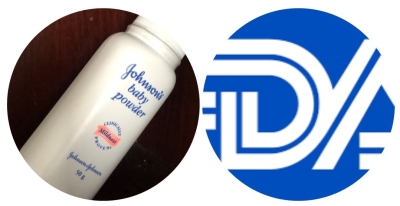
Last week
Reuters News published a new report as part of their continuing investigation into Johnson & Johnson revealing
new details on how the corporate giant used its relationship with the
Food & Drug Administration (FDA) to manipulate the public’s
trust for more than 50 years.
In November 2018 the FDA sponsored and hosted the “Asbestos in Talc
Symposium” in Washington DC. The purpose of the symposium was to
discuss and determine the best methods for testing cosmetic talc for asbestos
amid increasing concerns of consumers following news reports of asbestos
found in cosmetic talc products sold in the US.
While FDA meetings are typically open to the public, the FDA’s “Asbestos
in Talc Symposium” was an invite-only affair. Attendees were limited
to past and present employees of the FDA and other regulatory agencies
along with representatives of the cosmetic talc industry. Also present
were consultants and scientists hired as expert witnesses by talc manufacturers
to debunk legal claims by mesothelioma and ovarian cancer victims asserting
that asbestos in talc products was responsible for their illness.
Dr. David Egilman, a physician and recognized expert in the detection of
asbestos in talc, sought to attend the FDA’s timely and important
symposium. He was hoping to offer his expertise, as a physician and researcher,
on what technicians should look for under the microscope. Dr. Egilman,
who has served as an expert witness on behalf of mesothelioma and ovarian
cancer victims in lawsuits against cosmetic talc companies, was denied
an invitation to the FDA’s symposium.
The FDA’s exclusion of attendees, such as Dr. Egilman, whose views
do not align with the cosmetic talc industry, is not surprising. Since
the 1970s the FDA has downplayed the risk of asbestos contamination in
talc. It has allowed the talc industry to self-regulate despite the serious
concerns repeatedly raised by outside experts about talc and other harmful
agents in cosmetics.
In 1983 a graduate student petitioned the FDA for warning labels on cosmetic
talc products about potential asbestos exposure. The FDA denied the request
stating that there was no evidence that talc products contained enough
asbestos to present a danger.
In 1993 the FDA received another petition for warning labels, this time
from three doctors who based their request on 30 years of scientific data
that talc use in the perineal area was linked to ovarian cancer. The petition
was denied.
In 1994 and in 2008 Dr. Samuel Epstein, environmental medicine professor
at the University of Illinois, petitioned the FDA to put a warning label
on talc due to it’s link to ovarian cancer. Both petitions were denied.
As more is learned about the FDA’s failure to act on decades-old
reports of asbestos in talc out of deference to the cosmetic talc industry,
it appears that current FDA leadership is starting to wake up!
In March of this year a statement and
safety alert was released by FDA Commissioner Scott Gottlieb, M.D. after independent
testing revealed the presence of asbestos in a popular brand’s cosmetic
powder. Although, in so doing, Commissioner Gottlieb stated that the current
law does not require cosmetics to be reviewed and approved by the FDA
prior to being sold to American consumers, and actually inhibits the FDAs
ability to adequately monitor products once they’re on the market.
Commissioner Gottlieb’s statement reflects the urgent need for the
FDA to work with Congress to modernize the outdated regulatory framework
that the FDA has been operating under for more than 80 years when it comes
to cosmetics and acknowledges that federal rules have not kept pace with
the cosmetic industry’s substantial growth and a global supply chain.
The same day his statement was released, Commissioner Gottlieb announced
his resignation from the FDA.
In October 2019, FDA testing found chrysotile asbestos in a bottle of Johnson
& Johnson’s Baby Powder prompting a manufacturer recall of 33,000
bottles of baby powder. J&J denied the accuracy of the tests and claimed
that their own testing of the same lot of powder came up negative for
asbestos, but the FDA is standing by its findings.
Could this finally be the end of the FDA’s “friendship”
with J&J and its cronies, and the start of meaningful consumer protection
from asbestos-contaminated cosmetic talc products? Stay tuned.